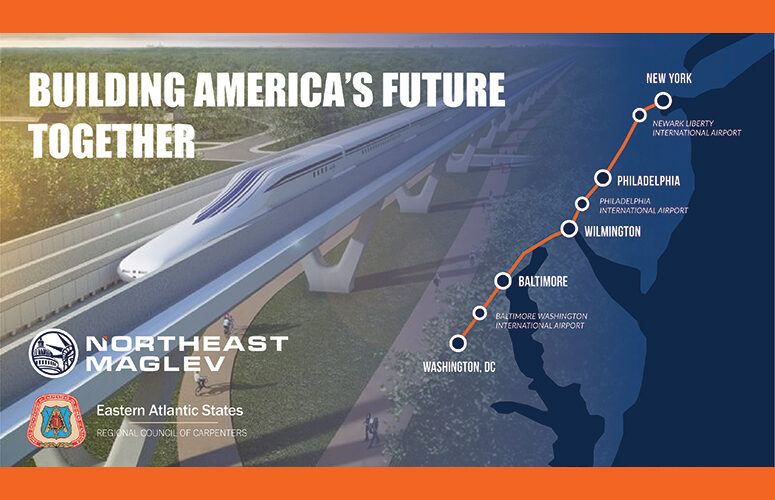
Cancer Research: Progress and Opportunities
By Arnold M. Baskies, MD, FACS, Chief science officer & vice chair for the American Cancer Society’s National Board On Nov 28, 2016We are living in an unprecedented and exciting time in history. It’s a time when accelerating cancer research – a “moonshot” – remains in the news. There is a deep and sustained longing on the part of Americans, and the people of New Jersey, to eradicate the threat that hits just about every home. We are impatient with the current rate of progress. Cancer is a disease that hurts those we love.
There is good news.
Thanks in large part to the American Cancer Society’s work, we know how to prevent many cancers. We know how to detect many cancers early and provide effective treatments. We know how to get those interventions to the underserved. We are improving palliative care to reduce suffering. We are learning how to provide high quality follow-up care to the nation’s 14.5 million survivors – a number that is expected to climb to 20 million by 2026.
In fact, thanks to the efforts of the American Cancer Society and institutional partners including Princeton University, cancer death rates have declined 26 percent in the last two decades. And we will see the cancer death rates continue to decline because with every dollar invested in the society’s research program, we will take one step closer to a world free from the pain and suffering of cancer.
Many people know the American Cancer Society as a research organization. Although we do much more than research, it remains at the heart of our mission. Most recent major cancer research breakthroughs can be traced back to the American Cancer Society. That’s not surprising. Since 1946, the society has invested over $4.5 billion in research – more than any other private, not-for-profit organization in the US. In that time, 47 Nobel Laureates have been supported by the society at early stages of their careers, and we’ve funded more than 23,000 scientists at more than 1,100 institutions nationwide, including many at Princeton University.
Our research program includes both intramural research, which includes epidemiology, surveillance and survivorship research we conduct in-house, and extramural research, which is funding we provide to support cancer research conducted by others. Our advocacy affiliate, the American Cancer Society Cancer Action Network, works to increase government funding in cancer research and prevention programs.
With this three-pronged approach, we’re able to gain a better understanding of what causes cancer, how to prevent it, and how to more effectively treat the disease.
Regarding intramural research, there are currently more than 60 researchers employed to conduct research full time at the American Cancer Society. These cancer experts: conduct large-scale studies, including our current Cancer Prevention Study 3 (CPS-3); produce reports on cancer statistics, such as Cancer Facts & Figures; examine psychosocial and behavioral factors related to cancer; monitor the economic and policy impact of cancer around the world; and identify population groups that experience an unequal cancer burden, and uncovers the best ways to address these disparities.
The society’s more familiar extramural program focuses on granting funds to others who study cancer – scientists and health professionals at institutions across the country. The society is currently funding more than 800 cancer research projects – and has funded more than 30,000 grants over the past 70 years.
How do we do it? Our extramural program supports all aspects of cancer research and training, selects grantees using a rigorous peer-review process, and prioritizes investigators who are early in their careers. We fund the most innovative cancer research and invest early to jump start the careers of the most promising young scientists and health professionals. We also provide leadership and critical support for understudied areas in cancer research.
Since 1947, the American Cancer Society has awarded grants to outstanding investigators at Princeton University, with a total investment of more than $23.6 million. Of that investment, about $12 million has been invested over the past 25 years.
One of the notable investigators funded through our research program in the past 25 years is Dr. Yibin Kang, Warner-Lambert/Parke-Davis Professor of Molecular Biology. Dr. Kang is a recipient of an $840,000 American Cancer Society grant for functional genomics analysis of breast cancer dormancy and progression. Dr. Kang’s award is the largest grant ever awarded to an investigator at Princeton by the American Cancer Society.
Society-funded researchers are the best and the brightest; and working in some of the most exciting areas of cancer research today. With continued support of the society’s research program, we will one day realize our vision; a world free from the pain and suffering of cancer.
Our purpose is to achieve it, and research gives us hope.
About the Author: Dr. Baskies is the chief science officer and vice chair for the American Cancer Society’s National Board and is a surgical oncologist and a medical director with Virtua Medical Group in South Jersey.
Related Articles:






